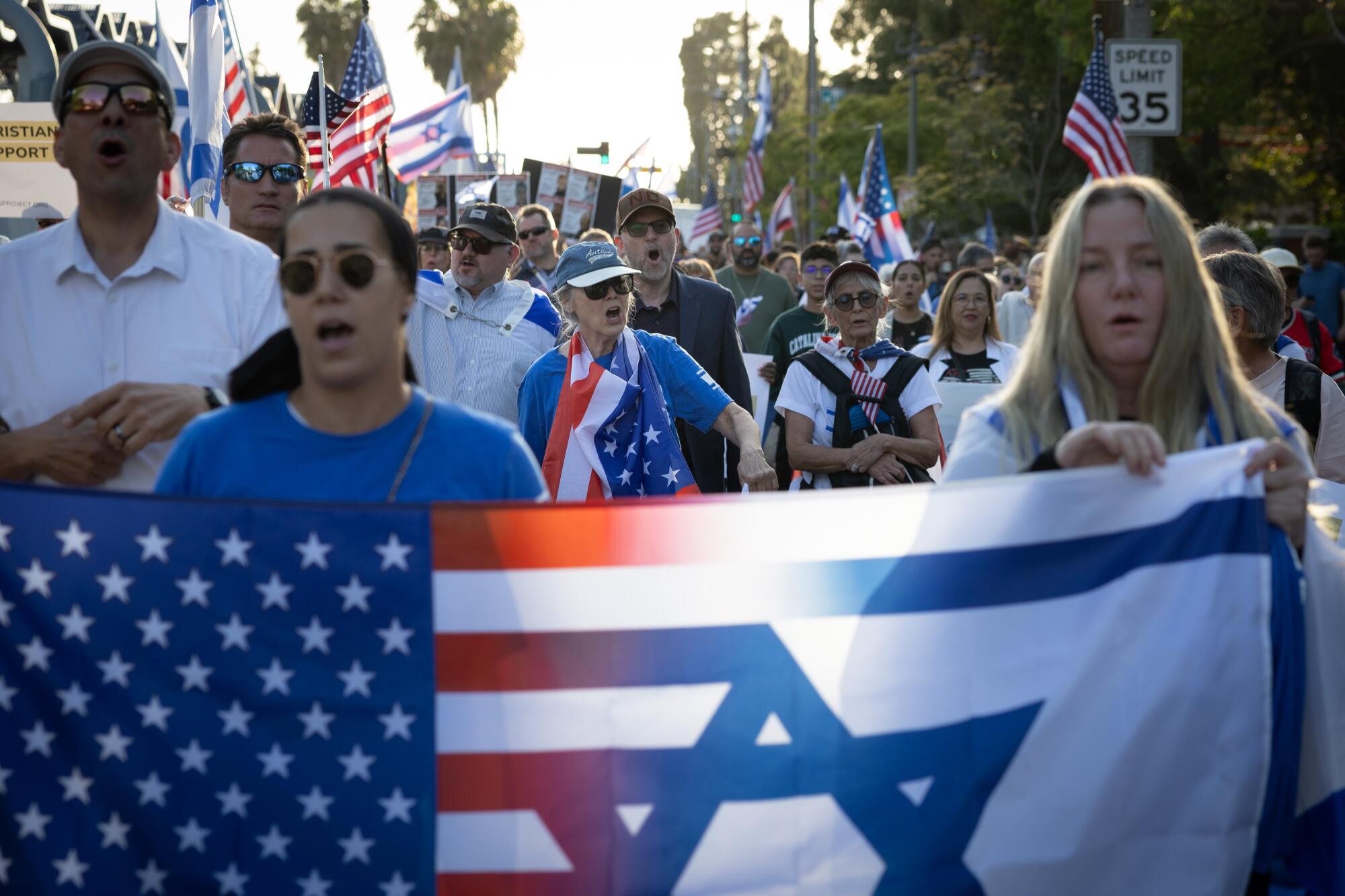
- Share via
Standing at a cloth-draped table where the Torah is read, Rabbi Sharon Brous delivered her Saturday sermon, recounting her experience at a recent UCLA protest.
Demonstrators draped in Israeli flags screamed at students in keffiyehs. The rhetoric was hateful, laced with threats of violence, she said.
“It felt like everyone was drowning in opposite ends of a raging sea, a sea of grief and fury,” she told nearly 250 members of her congregation, IKAR, gathered in their place of worship, a high school gymnasium on Fairfax Avenue earlier this month.
She described feeling heartbroken by what she witnessed on April 28, “by the language and the vitriol that came from our own Jewish community … language that I have to say matched some of the worst language that we’ve heard against Jews in the last several months.”
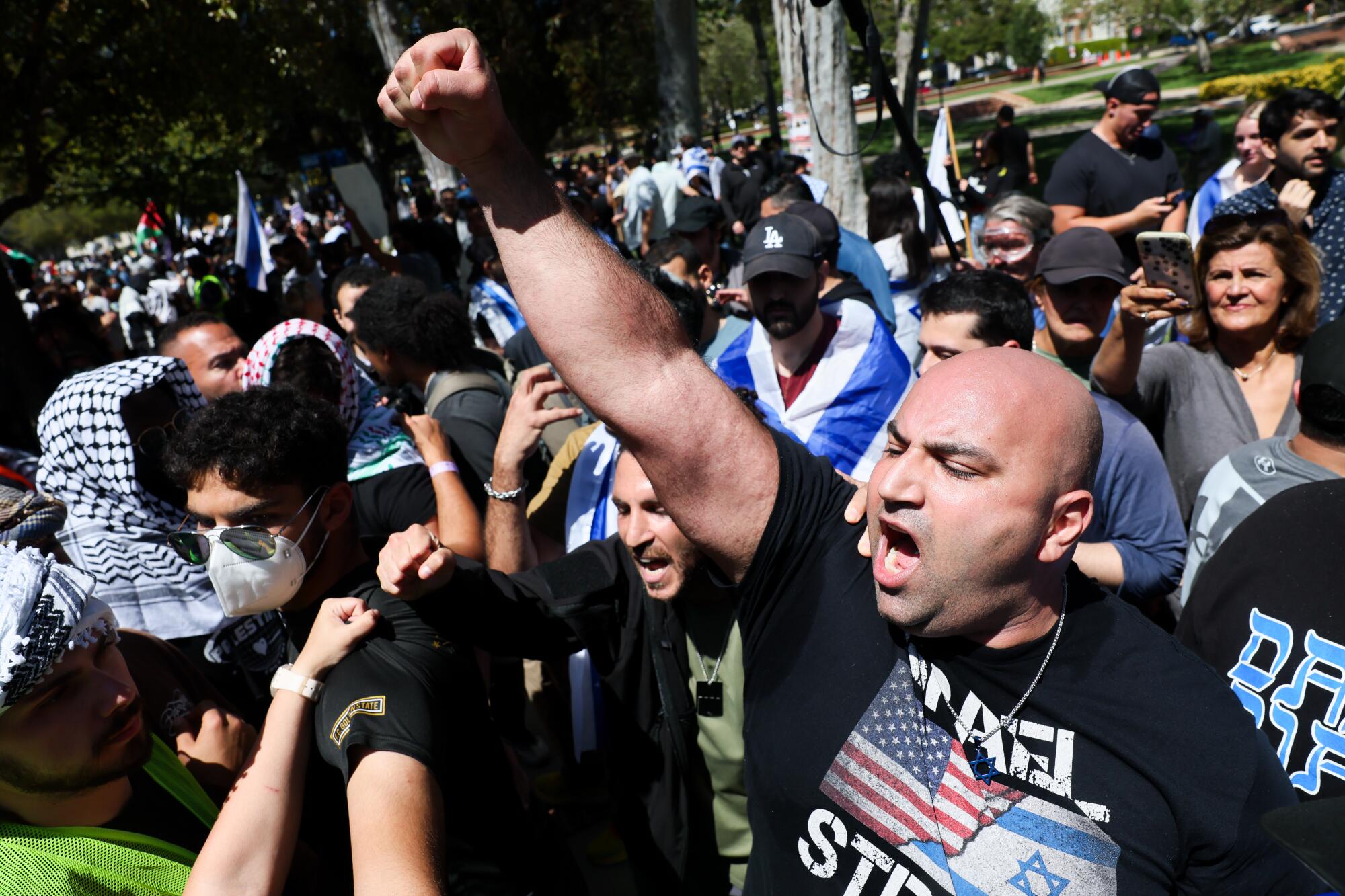
Two days later, pro-Israel counterprotestors attacked pro-Palestinian students at UCLA, descending upon their tent encampment, hurling objects, swinging sticks and sending more than two dozen to the hospital.
Since that assault on April 30, unrest on university campuses around the nation has escalated even further, with more arrests, protests and canceled commencements.
The Oct. 7 Hamas attack on Israel, and Israel’s invasion of Gaza, have torn open long-standing divisions within the American Jewish community over questions of Zionism, nationalism and Palestine. Brous and other progressive Jewish leaders are seeking a middle ground that respects the humanity on both sides of the conflict — as elusive as that goal may seem.
They decry a zero-sum mentality that pits one group against another and deepens the ideological divide so that — in the rhetoric of the moment — to be pro-Israel is to be anti-Palestinian, to be pro-peace is to be anti-Israel. These are false dichotomies, they say.
Understanding the experiences of both Israelis and Palestinians is precisely what is needed right now, they argue — to grasp more than one truth at a time.
But the loss of life — about 1,200 Israelis on Oct. 7 and more than 34,000 Palestinians in the Gaza Strip — has caused many to double down on one side.
At universities such as UCLA, where students from diverse backgrounds live, study and debate together, the clashes have been particularly extreme, leaving both Jewish and Muslim students feeling unsafe.
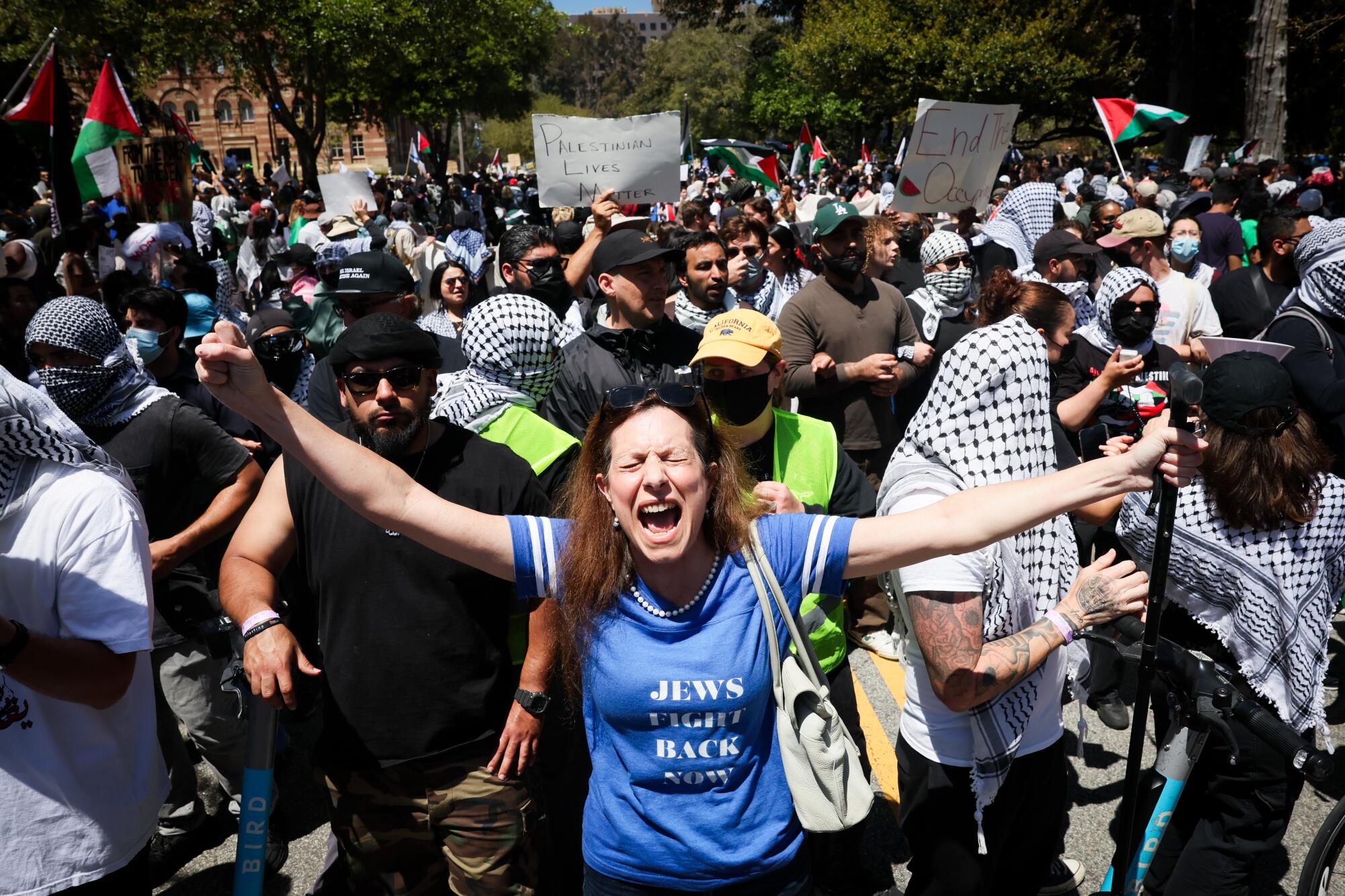
A recent survey of college students and American adults released in March by the University of Chicago documents an escalation of fear, antisemitism, Islamophobia and support for political violence since Oct. 7.
A majority of Jewish students, for instance, understood the chant “from the river to the sea, Palestine will be free” to mean the expulsion and genocide of Israeli Jews. (Most pro-Palestinian students interpret its meaning differently: that Palestinians and Israelis should live side by side in two separate countries.)
Muslim students and those who sympathize with the Palestinian cause reported being called terrorists, having their kaffiyehs ripped off and even being threatened with rape, according to the survey.
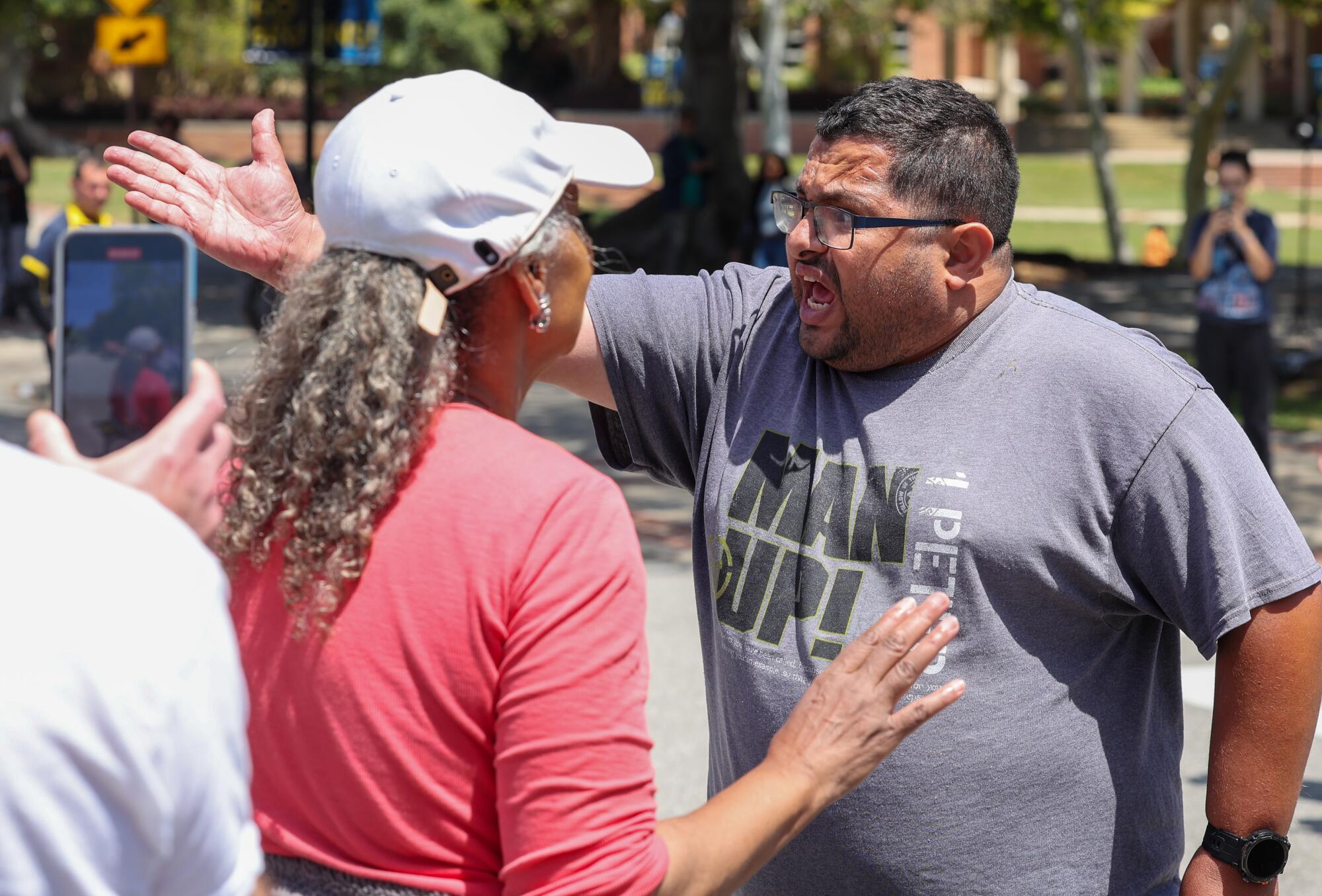
As pro-Palestinian tent encampments have sprung up on campuses across the country, outside activists have either joined the demonstrations or attacked the protesters, as happened at UCLA.
“I understand fully and connect to the immense trauma of Oct. 7 — and I understand fully the sense of devastation and fear and suffering of Palestinians in Gaza,” said David Myers, a professor of history at UCLA, who found himself “feeling very much alone” last fall as lines were quickly being drawn. “But it seemed that not many people could show empathy for both sides.”
Over the last seven months, Myers has met regularly with students — some Jewish, some not — in an attempt to bring understanding to the violence in Israel and in Gaza. He has helped organize a peace vigil and a teach-in, and in the winter, he taught a class in the history of antisemitism.
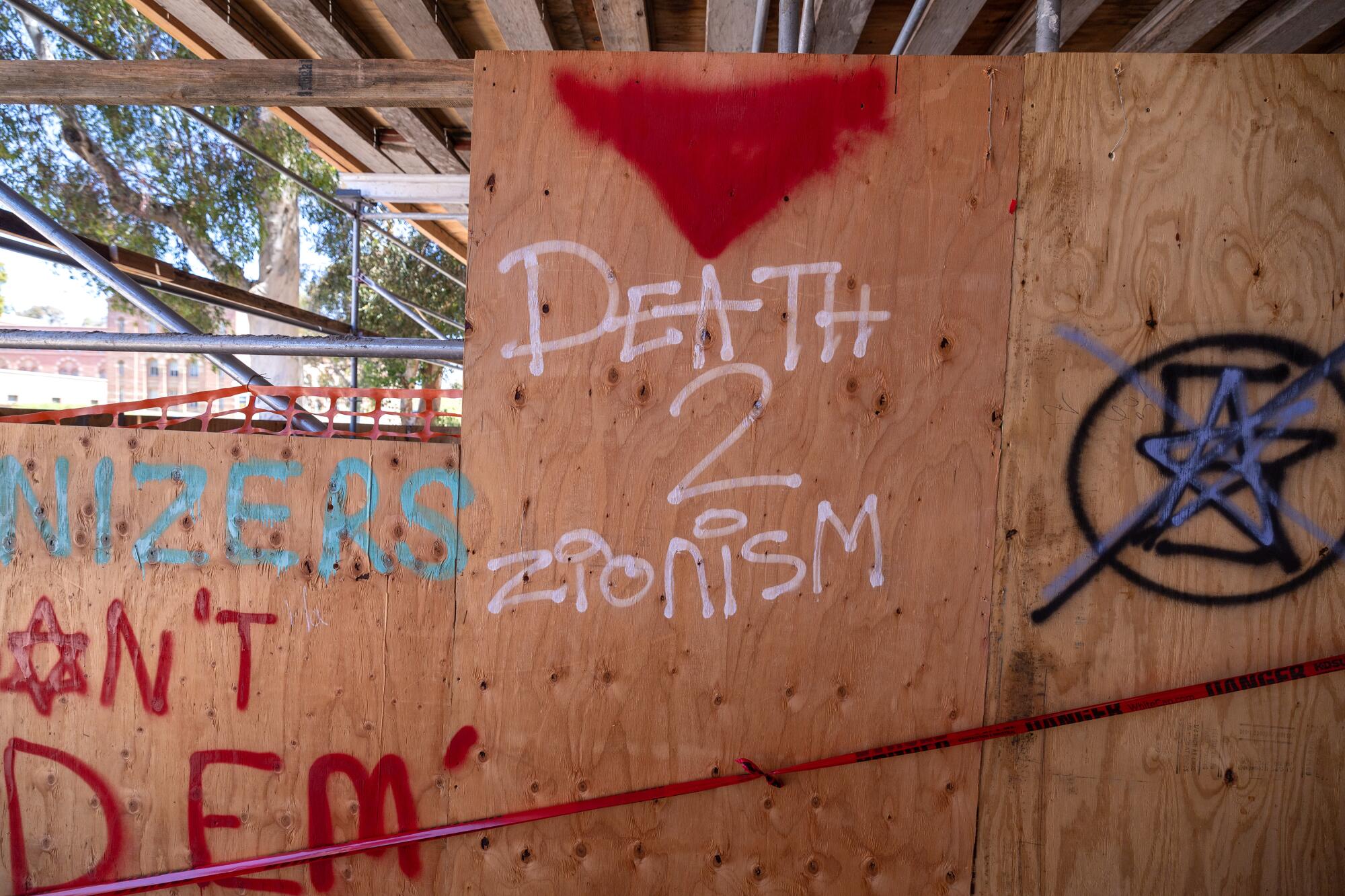
Despite these efforts, Myers said that he had never seen anything “so terrifying” in his 33 years on campus as the April 30 attack on the pro-Palestinian encampment.
“Leaders of the Jewish community must not only condemn the unprovoked attacks of last night,” he wrote in an opinion piece in the Forward, “they must also call out the malign actors from within who purport to defend Jewish students but engage in the very heinous acts of which they accuse the other side,” referencing the aggression of the pro-Israel faction.
While distancing themselves from the demonstrators, the students of Hillel at UCLA issued a statement on May 1, calling for solidarity among Jewish students over “shared feelings of anger.” As for those who sought to exploit the moment:
We cannot have a clearer ask for the off-campus Jewish community: stay off our campus. Do not fund any actions on campus. Do not protest on campus. Your actions are harming Jewish students.
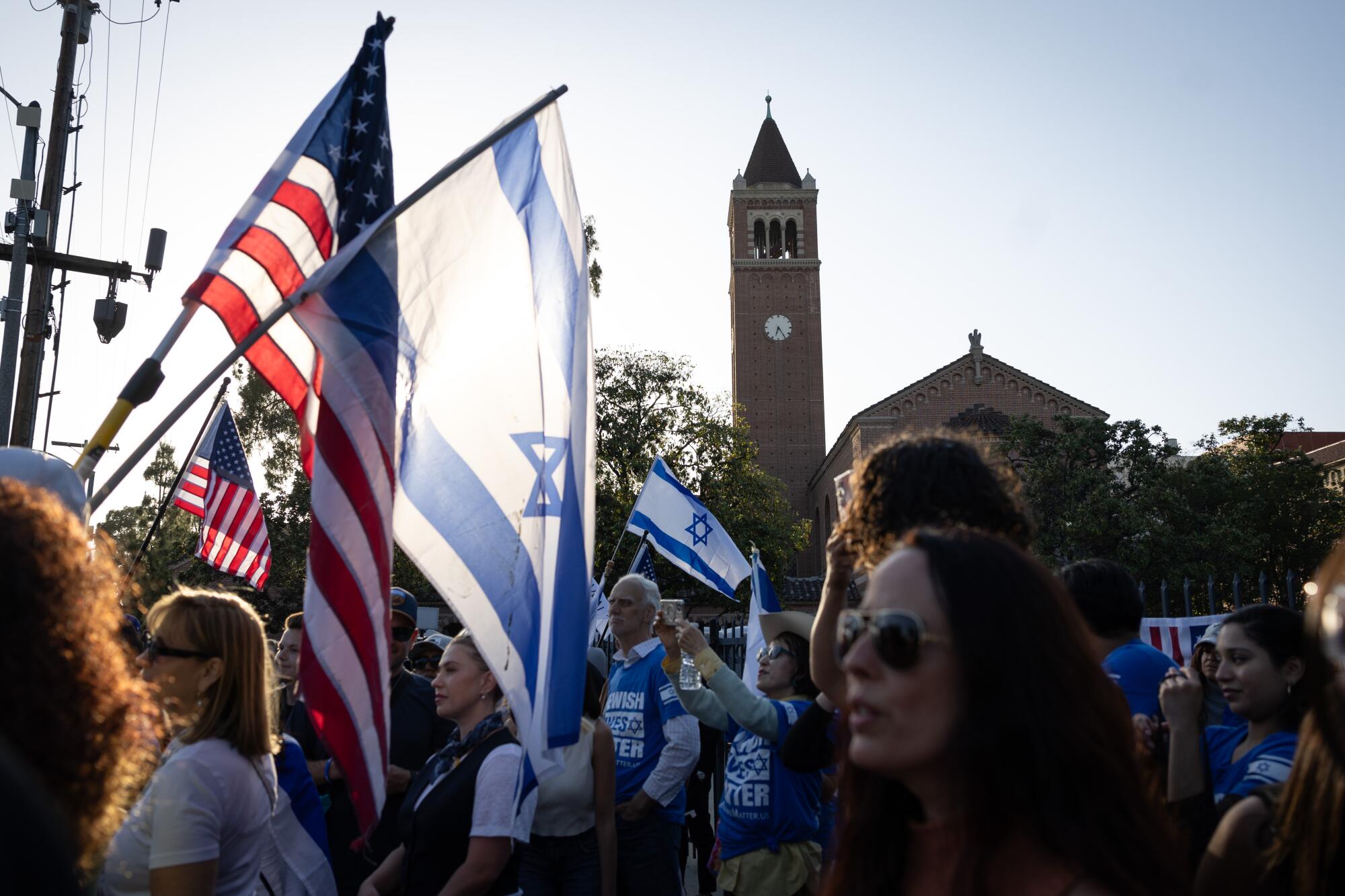
Hillel, which has long provided many Jewish students with a sense of community through Shabbat dinners and other gatherings at campuses around the country, has itself become a target, with pro-Palestinian students calling for it to be banned at UC Santa Cruz.
“Everything that everyone has been worried about and fearful of is happening,” said Andrea Hodos, associate director of NewGround, a nonprofit fellowship program that seeks to facilitate conversations between Muslims and Jews based on shared values. “It’s all happening, and the fear and anger are narrowing our vision.”
That goes just as much for anti-Muslim hate as for antisemitism, which are both on the rise in the U.S.
“We strongly believe that if you only look at antisemitism without understanding how Islamophobia — and anti-Arab and anti-Palestinian bias and hate — are embedded in our society, you make it less safe for both Muslims and for Jews,” Hodos said.
Hodos argues that the expression once coined by Facebook — “move fast and break things” — is precisely the opposite of what is needed at this moment.
“One of the questions we have been asking ourselves is how do you — in a moment with so much urgency — move slowly,” she said. “With starvation on the horizon, with hostages who are still being held — what does it mean to heal slowly and heal while the trauma is compounding?”
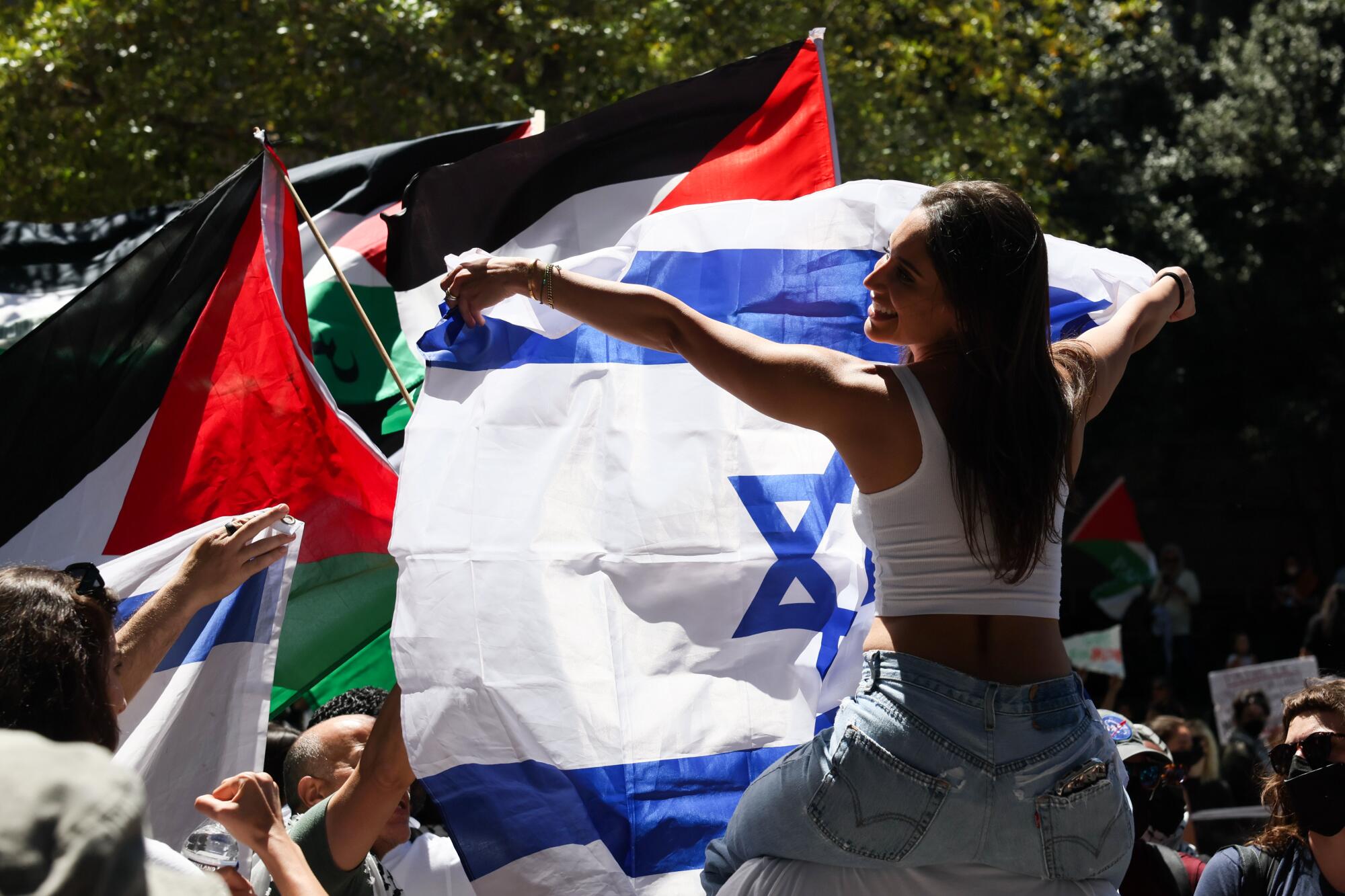
Estee Chandler, a Jewish supporter of Palestinian equality, was at UCLA on April 28, where she witnessed threats and taunting from pro-Israel protestors wearing stars of David and necklaces with the chai symbol.
The violence on campus two nights later was “soul crushing,” she said.
Chandler, who founded the Los Angeles chapter of Jewish Voice for Peace, is a critic of Zionism and calls Israel’s invasion of Gaza “genocide.”
In her work, Chandler has seen “a focused and concerted effort to frame the quest for Palestinian rights and freedoms and the support for it as antisemitic, to conflate anti-Zionism with antisemitism,” even though Jewish anti-Zionism has been around as long as there has been Jewish Zionism.
Calling for an “immediate, complete and permanent cease-fire,” Chandler argues that “Jews will never be safe in a world so long as we have a state that oppresses people in the world. Destruction of Palestinian land and homes does not make Jews safer. It is making us less safe.”
As the tenor of the protests become louder — and as the war continues — the search for a note of reconciliation and peace has become more urgent.
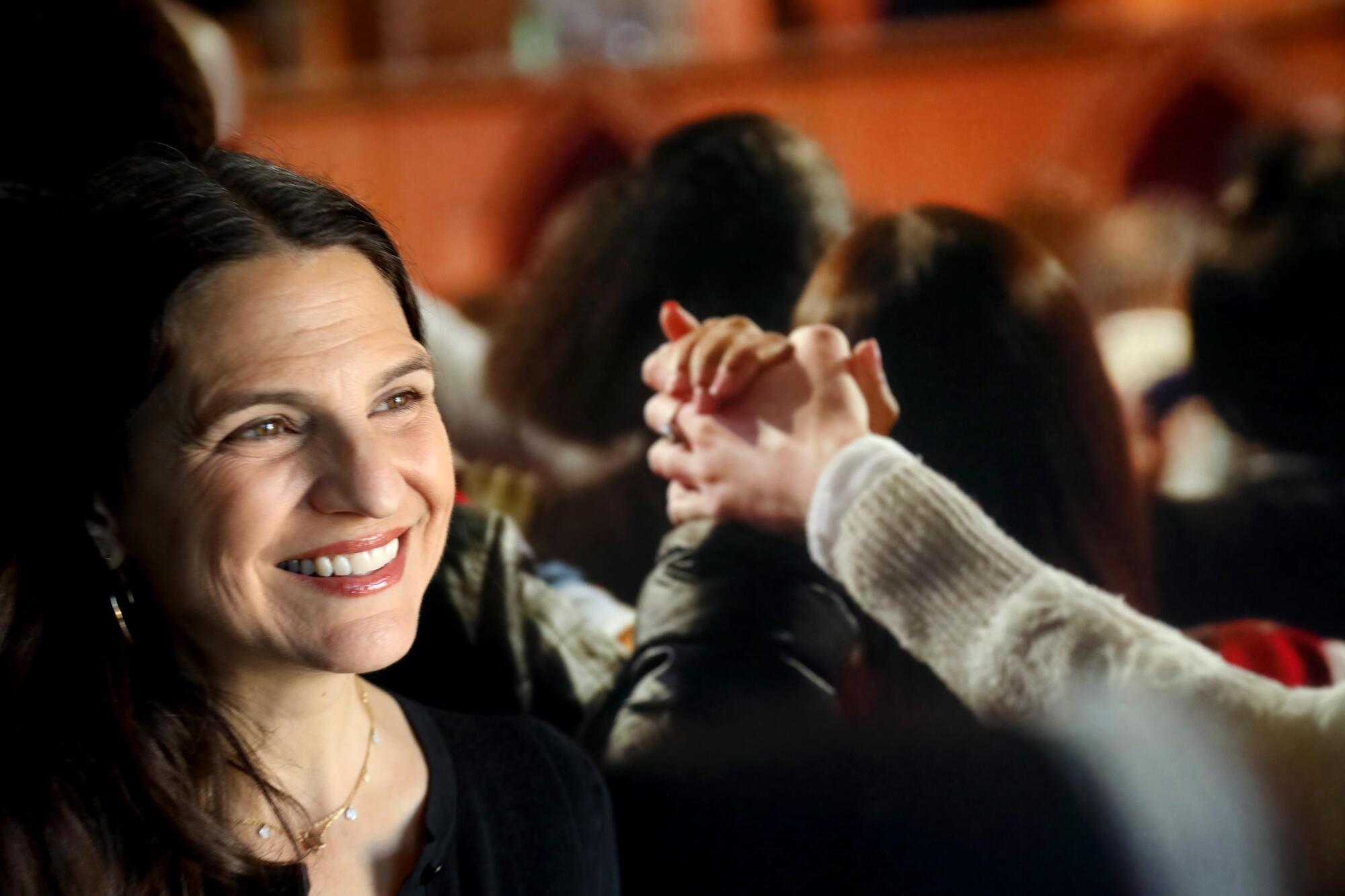
Near the end of her Saturday sermon, Brous described a moment at UCLA, when a leader of Standing Together — an alliance of Jewish and Palestinian citizens of Israel — began to chant.
In Gaza, in Tel Aviv, all children deserve to live. In Gaza, in Tel Aviv, all children deserve to live.
As remarkable as the message was, even more remarkable, Brous said, was hearing the voices of the demonstrators who joined in — those who had just been shouting at each other.
“It seemed that those protesters, each of whom is driven by own grief and their righteous desire for justice, did not know that such a collective call was even imaginable.”
More to Read
Sign up for Essential California
The most important California stories and recommendations in your inbox every morning.
You may occasionally receive promotional content from the Los Angeles Times.











